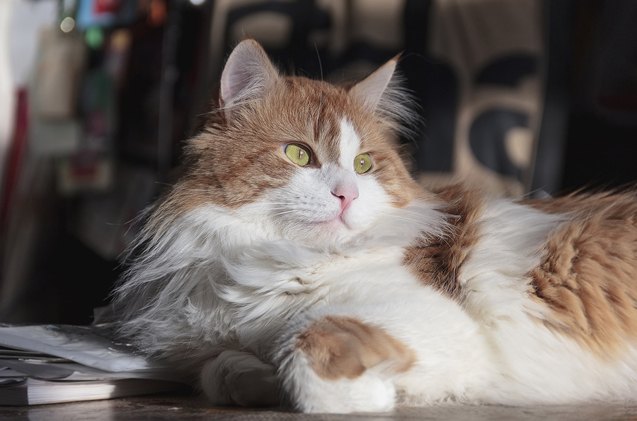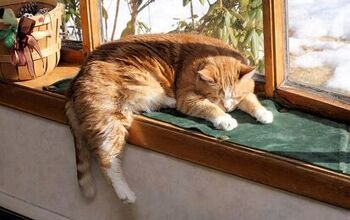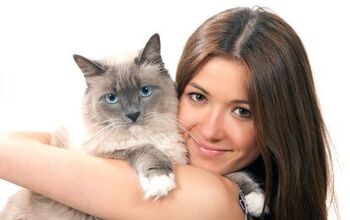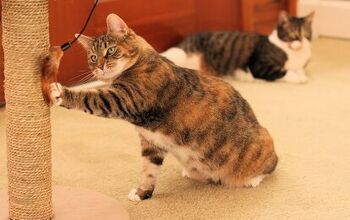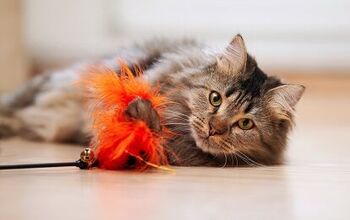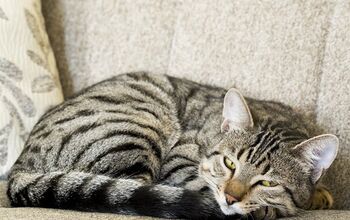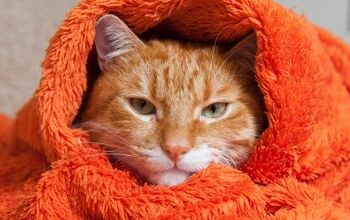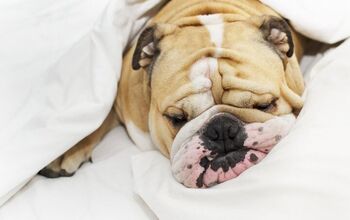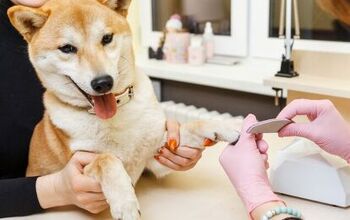How Feline Behavior Can Change With Age


Just like humans, cats change as they get older. That’s why it’s so important to really get to know your kitty and look for changes in his personality and habits. That way, you can alert your vet and have your pet examined promptly. Plus, it’s also a good idea to have your senior cat examined at least once a year to keep track of his health.
Below are a few of the ways that a feline’s behavior will change as he gets older. Just remember that not all kitties will exhibit all of the following changes. Every pet is an individual and you and your vet know your cat best.
Related: Common Bad Behavior Issues And How To Fix Them
Feline Cognitive Dysfunction (FCD) might affect your cat as he gets older. Some kitties over the age of 10 develop this condition, so you might start to notice a few changes in your pet’s behavior.
What does FCD do? Well, it can affect your cat in various ways, leading to changes in behavior and/or emotional state. For example, signs might include depression or anxiety. You might notice that your kitty isn’t able to remember things like he used to, or you might notice that he can’t get around as easily as he used to.
The good news is that there are things you can do to help your cat if he is diagnosed with FCD. Of course, your veterinarian can help you figure out if this problem is indeed to blame for your kitty’s behavior, and they can also help you figure out the best ways to support your older pet.
Sure, Feline Cognitive Dysfunction might be the reason for your kitty’s new behaviors in his old age (and we discuss some of those behaviors below), but there are other reasons why your cat might be acting differently than he used to. In other words, FCD isn’t always the culprit.
Here are some of the conditions that can affect an older cat, and the symptoms that might arise as a result:
- Changes in appetite might be caused by dental problems.
- A decrease in activity level or trouble moving around might be caused by arthritis.
- Urinating or defecating outside of the litter box might be caused by conditions like hyperthyroidism, arthritis, or kidney disease.
The bottom line is this: if you start to notice that your cat is acting strangely, talk to your vet for advice. Discuss your pet’s symptoms and behaviors so the veterinarian can get to the bottom of things and recommend the necessary medications or modifications that can help your kitty feel better and move around the house with greater ease.
Related: What Your Cat Really Thinks of You
Becoming More Active at Night
While it’s common for cats to have nocturnal habits that can be somewhat annoying to their owners, if your kitty has become more active than usual at night in his old age, it could be a sign of restlessness that results from anxiety. Your kitty might be experiencing anxiety because he has trouble navigating the house when it’s dark. Or, there might be some separation anxiety if he isn’t near you during the night, so consider letting him sleep in your bed, or at least in his own cat bed in your bedroom, so he doesn’t feel lonely.
Another reason why your cat might be more active at night: he needs to go to the litter box more often. But the loss of his senses could make it harder for him to get to where he needs to go. If your older cat is active at night, particularly if he meows a lot, this could be a sign of vision or hearing loss, which might affect his ability to get around in a dark house. After ruling out medical problems with your vet, it might be enough to simply leave some night lights on to ease his anxiety and help him find his way.
Not Using the Litter Box
A senior kitty might end up going to the bathroom outside of his litter box, but he’s not doing it on purpose, so don’t punish him.
This behavior might be the result of feeling the urge to go to the bathroom more frequently, having difficulty controlling elimination, or mobility issues, as a few examples. If that’s the case, adding more easy-to-access litter boxes around the house might be a great solution. That way, your kitty won’t need to go far when he needs to go to the bathroom. And selecting boxes that are designed to make it easy for a senior kitty to walk in and out is also recommended.
Other reasons why a cat might urinate or defecate outside the box include medical conditions like diabetes, kidney disease, or urinary tract infection, as a few examples. Therefore, if your kitty starts going to the bathroom outside of his litter box, it’s time to bring him to the vet to determine what’s causing the behavior and to get him the right treatment.
Changes in Vocalizations and Behavior
Feline Cognitive Dysfunction might cause your senior kitty to become more vocal, meowing more throughout the day and/or night. He might also begin pacing a lot and might show signs of confusion or disorientation. In this case, implementing predictable routines and schedules may be a great way to help your cat feel more comfortable.
More than normal meowing could also indicate that your kitty is losing his hearing or experiencing discomfort or pain. If your cat has taken to meowing more than he used to, it’s a good idea to have him examined by a veterinarian in order to rule out medical conditions, anxiety, or other causes that can be controlled or resolved with the proper treatment.
Changes in Personality
A cat that typically craved attention when he was young might become more distant in his old age, or a cat that was distant before might now be quite social. Other personality changes might include irritability, indifference, or aggression. Bear in mind that some of these changes could be caused by physical ailments like weak senses or discomfort.
If your kitty wants to spend more time with you, make sure he gets the attention and care that he craves, as that will help him feel loved. For instance, he might enjoy snuggling with you on the sofa or being near you while you work at your desk. On the other hand, if your cat is grumpier than he used to be, getting his attention gently when you want to interact with him might be a helpful strategy.
Again, to rest assured that these changes are nothing more than the result of aging, have your kitty examined by a vet to rule out medical problems.
There are several simple steps you can take to help your aging kitty. As mentioned above, it’s critical that you discuss concerns with a veterinarian to figure out if there are underlying medical problems that are causing changes in behavior. If there are, your vet might recommend prescription medications, over-the-counter remedies, or procedures to address any physical issues that are taking a toll on your pet.
Want to help your senior kitty feel comfortable and content? Here are some things you can do for him:
- Brush him regularly, such as daily or several times per week, especially if he isn’t grooming himself as well as he used to—another common change in feline behavior that can occur with age. These grooming sessions may help keep his skin and coat smooth and soft, and can also be a wonderful way to bond with your pet, especially if he’s been craving more attention.
- To help keep your pet’s teeth and gums as healthy as possible, and avoid behavioral changes like food avoidance, your vet might recommend brushing your kitty’s teeth at home using a feline-specific toothpaste and toothbrush.
- To help your kitty get around more easily, consider adding pet ramps strategically throughout your home where your cat needs them most.
Your senior kitty may be a little different than he was when he was younger, but he still loves you unconditionally, so take care of him, make sure he’s seen by a veterinarian, and give him highly nutritious food to help keep his body as strong as possible.

Lisa Selvaggio is a freelance writer and editor, and our resident cats-pert, with certifications in pet nutrition and pet first aid. She enjoys producing content that helps people understand animals better so they can give their pets a safe and happy home.
More by Lisa Selvaggio



